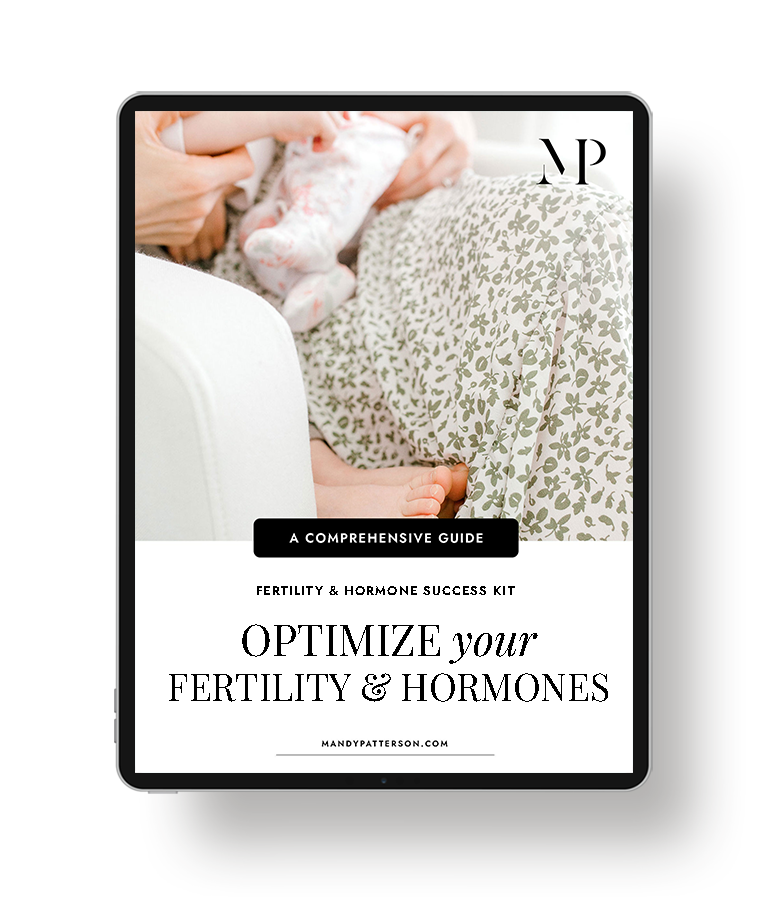Fertility and reproductive health. You’re obsessed with, or you almost never think about it except when your old college roommate announces her third pregnancy on Facebook. For many of us, fertility and reproductive health can be all consuming when trying to get pregnant. Even if you’re not ready for a baby, reproductive health is still something you should treasure.
As women, we know reproductive health can be a tricky subject to broach, and sometimes embarrassing. The vagina is a wonderland. It’s involved in both the pleasure you receive during sex and the miracle of birthing a child. Most women know that for optimal health it’s important to drink lots of water, eat healthy foods, exercise, and get eight hours of sleep. Still, research shows that there are other lifestyle choices that can impact your reproductive health, too!
Caring For Your Reproductive Health
While lifestyle choices aren’t everything, simple changes to certain lifestyle factors can actually affect your reproductive health. For example, exercise, diet, medications, alcohol and caffeine, illicit drugs and smoking, environmental toxins, and even stress can all affect your reproductive system. That being said, each individual is unique and different, and so is their fertility.
Additionally, reproductive health actually doesn’t just affect us females. It is also something that males need to seriously be thinking about. Remember, it takes two to tango…we’re talking about oocytes and spermatozoa here, friends. That’s why, when considering reproductive health and lifestyle factors, both parties need to be involved.
What Is The Vaginal Microbiome and How it Relates to Reproductive Health
While lifestyle factors affect both males and females reproductive health, the vaginal microbiome is something specific to females. It’s a complex, symbiotic system of bacteria, fungi, and viruses. These tiny organisms aren’t intruders, they actually help keep your body healthy! In fact, many microbiomes exist around your body like in your gut, skin, and lungs.
Let’s look at the bacteria called lactobacillus. It makes up the majority of the good bacteria present in the vagina. The lactobacillus makes lactic acid and hydrogen peroxide which keeps the pH level of the vagina low to prevent an overgrowth of unwanted fungus, like yeast. Isn’t that amazing!
The crazy thing is, you can actually impact the vaginal microbiome with the lifestyle choices you make!
Vaginal Microbiota Imbalances and Impact on Reproductive Health

While lifestyle factors affect both males and females’ reproductive health, the vaginal microbiome is something specific to females. It’s a complex, symbiotic system of bacteria, fungi, and viruses. These tiny organisms aren’t intruders, they actually help keep your body healthy!
If you’ve ever had an imbalance of lactobacillus, you know it. It’s typically due to an imbalance of fungus called candida albicans, more commonly known as a yeast infection. Moreover, when the vaginal microbiome becomes overrun with anaerobic microorganisms a host of problems can occur. This is called vaginal dysbiosis and causes things like bacterial vaginosis and urinary tract infections.
If you ever experience symptoms “down there” like itching, green or yellow discharge, inflammation or swelling, or a burning sensation, don’t hesitate to get help! Not only is it uncomfortable, but the long term effects can adversely impact your reproductive health.
A few steps you can take when making lifestyle choices that will help support a healthy vaginal microbiota include:
- Avoid douching – your vagina is a self-cleaning oven, it doesn’t need help!
- Avoid feminine products like powders that may contain talc.
- Remove athletic wear, spandex, or swimsuits immediately after use to avoid buildup of moisture.
- Avoid perfumed soaps or gels that contain toxic ingredients.
- Wash with warm water and a gentle, perfume-free soap only.
To recap, a healthy vaginal microbiome is the first step to supporting your reproductive health, and one you can easily achieve through a few lifestyle choices!
Seven Ways Lifestyle Choices Affect Reproductive Health
We’ve just touched on a more personal aspect of reproductive health, now let’s talk about a few general lifestyle choices you can make that will impact your fertility.
Exercise
This one may seem like a no-brainer, and it is to an extent. Exercise has a significant impact for those who are both overweight and underweight. For females who are overweight, with a BMI over 30, research found that after losing an average of 10.2 kg, 90% of obese previously anovulatory (ovulation does not occur) women began ovulating. On the other side of the spectrum, excessive exercise can negatively alter energy balance in the body and affect the reproductive system. Moderate exercise is the key!
Diet
Everybody knows eating a healthy diet is important to overall health. But did you know, there are certain food groups and vitamins that have a greater impact on reproductive health than others? For males, a diet high in carbohydrates, fiber, folate, lycopene, fruits, and vegetables correlates with improved semen quality. Additionally, adding antioxidants to the diet is associated with significant increases in pregnancy rates when compared to control groups. For females, research found that women with high “fertility diet” scores had lower rates of infertility due to ovulation disorders. The “fertility diet” included a higher monounsaturated to trans-fat ratio, vegetable over animal protein, high-fat over low-fat dairy, a decreased glycemic load, and an increased intake of iron and multivitamins.
Medications
Both one-off prescriptions and over the counter drugs can impact your reproductive health. Make sure you consult with pharmacists and information labels to determine the impact a medication may make on your fertility.
Alcohol And Caffeine
There is countless research on the effects of alcohol and aspects of health, even fertility. The problem is that while there is a link between infertility and alcohol, the amount that relates to an increased risk is not clear. One thing is clear, though, women who drink large amounts of alcohol have a higher chance of experiencing an infertility examination than moderate drinkers. Next time it’s ladies night, try and go lighter on the drinks if you’re trying to get pregnant.
Caffeine is in the same situation as alcohol, although increased amounts demonstrate a greater risk for both woman and unborn baby. Ultimately, try to keep from drinking more than two cups of coffee or caffeinated drinks a day.
Illicit Drugs And Smoking
If you thought exercise was a no-brainer, drugs and smoking are probably even more obvious. However, studies on illicit drug use and human fertility are scarce due to ethical considerations. Still, these drugs appear to have a negative effect on fertility. The same is true of smoking. While a more established link to infertility still needs to be assessed, it is documented that cigarette smoke contains over 4,000 chemicals!
Environmental Toxins
Speaking of chemicals, environmental toxins are also something that should be avoided when seeking to care for your reproductive health. For example, air pollution, heavy metals, pesticides, and endocrine disruptors are all environmental toxins that can impact your fertility. The best way to avoid environmental toxins is to routinely help your body’s natural detoxification pathways with a cleanse.
Stress
Stress is part of your daily life no matter what society you live in. Infertility and issues with your reproductive region are stressful. However, research shows that women who received counseling and support throughout stressful events increased their chances of becoming pregnant. Bottom line, don’t let stress take over your life and seek support from those around you. Your reproductive health, and overall health, will thank you later!
Ultimately, taking a look at your lifestyle choices and making a few small changes can have a huge impact on your reproductive health. The good news is that as a Certified Holistic Health Coach helping patients make lifestyle changes is my expertise! Reach out via my contact page to learn how!

















